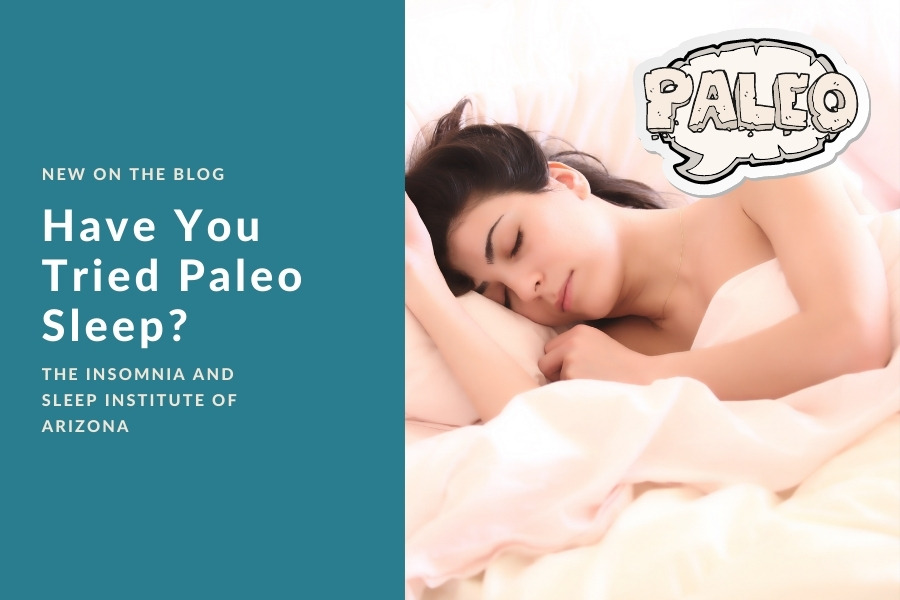You know about the Paleo diet, the trend of eating “like our ancestors,” but what about sleeping like our ancestors? According to some experts, that might be the key to better, longer, higher-quality sleep. The Insomnia and Sleep Institute of Arizona is home to Physician Director and “Top Doc” (as voted by his peers) Dr. Ruchir P. Patel. The triple board-certified, newly appointed Board President of the Maricopa County Medical Society leads the “Face of Sleep Medicine” in Arizona where you will find unparalleled staffing levels—including a clinical psychologist focused on cognitive behavior therapy (CBT). In some cases, sleep hygiene changes can be instrumental in improving your sleep, and we can thank our ancestors for these best practices.
CNN reports that, according to historian A. Roger Ekirch, we humans used to enjoy segmented sleep. He studied this during his analysis of nocturnal life in pre-industrial America and Europe. Specifically, we used to have an initial sleep followed by a second sleep. The break in between was full of eating, community activities, spiritual practices, sex, and taking medicine. Ekirch says, “Here was a pattern of sleep unknown to the modern world.” This research led to his book At Day’s Close: Night in Times Past, where he offers 500+ references to what we call biphasic sleep. Today, he has further unearthed over 2,000 references in several languages dating to ancient Greece.
The 8-Hour Myth
The concept of “sleeping through the night” is relatively new (in the grand scheme of things), taking hold circa 200 – 300 years ago. The big push for an 8-hour sleep was, unsurprisingly, electricity along with the Industrial Revolution. This led to what CNN dubs a capitalist belief of sleep being time wasted. Why sleep when you could work? This issue aside, the work of historians like Ekirch has us rethinking what “good” sleep means and considering other ways to tackle sleep issues. Ekirch believes that “a large number of people who today suffer from middle-of-the-night insomnia, the primary sleep disorder in the United States … rather than experiencing a quote-unquote, disorder, are in fact, experiencing a very powerful remnant, or echo of this earlier pattern of sleep.” However, this does not mean that insomnia, which is indeed a diagnosable disorder, does not need treatment.
Ekirch does stress that he speaks as a historian, not as an MD. However, the truth remains that on average, adults require around 7+ hours of sleep in a 24-hour period—but over 33 percent of American adults self-report not getting enough sleep according to latest information from the CDC. Part of this may be due to our lifestyle (of working 8+ hours per day), but what Ekirch calls the “myth” of the 8-hour sleep cycle may also be to blame in some cases. He discovered that the first overt reference to “biphasic sleep” was in a 1697 London document in the deposition of a 9-year-old child who mentioned “first sleep.” Ekirch says, “I had never heard the expression [before], and it was expressed in such a way that it seemed perfectly normal.” Since then, Ekirch has uncovered several references to “first” and “second” sleeps in a variety of documents, from diaries to medical texts.
Sleep Shifts
The “first sleep” began to elongate circa the early 19th century, shortening second sleep, and the movement toward an 8-hour ideal sleep was in full swing. Second sleep transitioned into an afternoon nap by the end of that century. It was not only electricity making it possible to work (and do other things) at night that supported this shift, but also the strange new attitude that “sleep is for wimps,” according to Ben Weiss, author of Wild Nights: How Taming Sleep Created Our Restless World.
Still, this does not mean that there was some golden age of sleep when everyone was well-rested and energized. Medical texts from the pre-Industrial Revolution show that sleep has long been linked to our overall health (both physical and mental). There are documented sleep aid recipes and tips from many centuries ago (many of which might be considered quite bizarre). What this tells us is that people have always struggled with sleep, whether we have a biphasic schedule or aim for those 8 hours per night. What we do know with recent studies is that when people have the option to sleep longer, over time they become naturally biphasic or polyphasic in many cases.
If you struggle with sleep issues, including insomnia, it may not be possible (or advisable) to force a biphasic schedule—but you should certainly seek help from a sleep specialist. Contact The Insomnia and Sleep Institute today to schedule your consultation by completing the online contact form.





